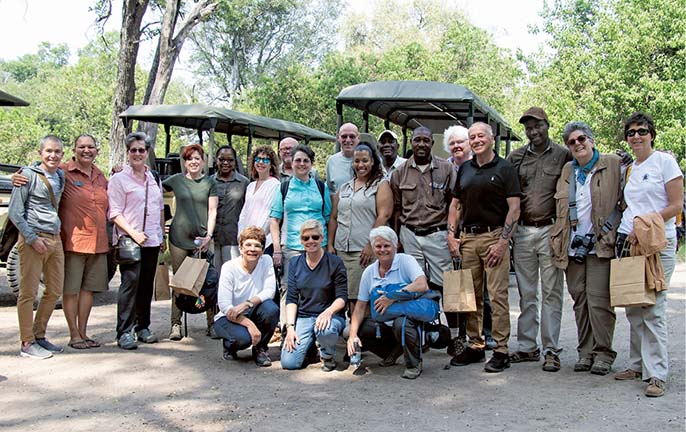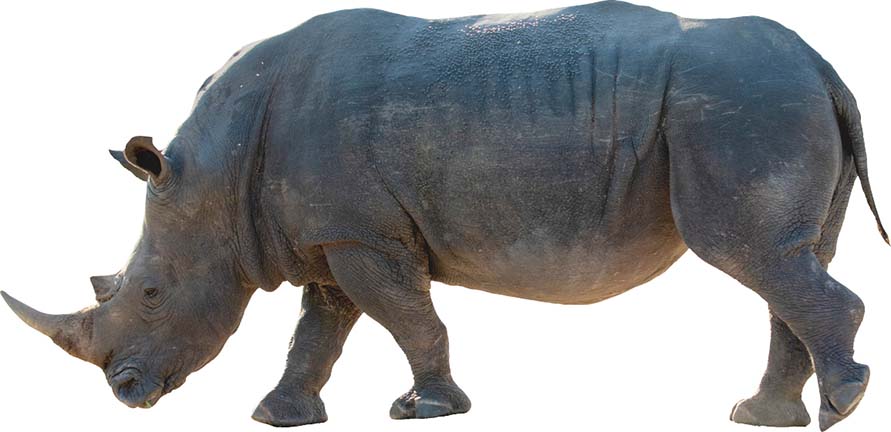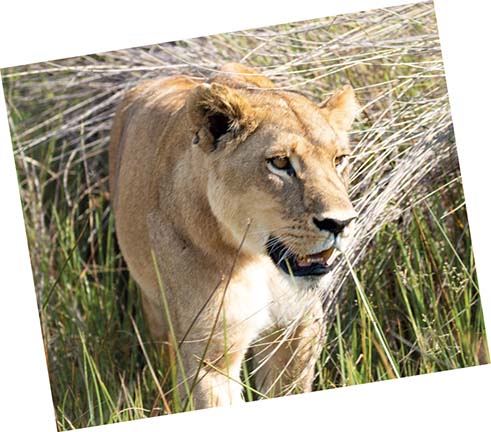
Blinded By The Light
 Temo pulled the jeep into a sandy clearing in the Botswana bush and turned off the lights. The darkness was total—or should have been for there was no human-made light pollution in any direction—and yet I could clearly see the tall grass, the sandy ground, the upturned faces of my four traveling companions. I looked up and gasped, astonished by the amount of starlight pouring out of the night sky.
Temo pulled the jeep into a sandy clearing in the Botswana bush and turned off the lights. The darkness was total—or should have been for there was no human-made light pollution in any direction—and yet I could clearly see the tall grass, the sandy ground, the upturned faces of my four traveling companions. I looked up and gasped, astonished by the amount of starlight pouring out of the night sky.
Never in my life had I ever imagined that I would see that many stars—and they most certainly did not behave like the stars I am accustomed to seeing every night as I walk the dog. The sky was alive. I looked down and blinked several times to clear my eyes and to confirm that what I was seeing was real. Yes, it was true; the night sparkled as if glitter had been dashed across the heavens.
Around me, hushed sounds of astonishment blended with the never-quiet silence of the bush as each of us fanned out into the grass—heads back, mouths agape.
I remember seeing the Milky Way when I was young. Never did it look like this. My camera lay abandoned on the seat of the jeep, an inadequate tool, in my hands at least, for capturing the immensity of what we were witnessing.
I felt like crying and laughing all at the same time. I stood looking up for so long I got a crick in the back of my neck. I didn’t care.
Eventually we returned to the jeep. I did not want to go back to camp.
Back home now, the memory of that night remains powerful, and stands out for me even in the midst of all the other breath-taking experiences we had on our CAMP Rehoboth African adventure. I often find myself looking up at our own night sky and its seemingly meager sprinkling of light, and remembering that all those stars are still present—even if I can’t see them.
 We cannot see the stars because we are “blinded by the light” of our own civilization. Not to imply that civilization is bad in and of itself, for it does insulate us from the dangers our early ancestors faced in a wild and untamed world.
We cannot see the stars because we are “blinded by the light” of our own civilization. Not to imply that civilization is bad in and of itself, for it does insulate us from the dangers our early ancestors faced in a wild and untamed world.
The stars would have been magnificent; the nights, terrifying.
We depend on our civilization and our technology to keep us safe and comfortable, but it can blind us to far more than the stars.
South Africa was stunning. Cape Town is beautiful; Table Mountain a spectacular backdrop at every turn. In the wake of apartheid, South Africa’s new constitution guaranteed equal rights for all people. It was the first in the world to ban discrimination based on sexual orientation and the fifth to legalize same-sex marriage. South Africa contains an abundance of valuable natural resources.
Then there are the townships. Dense communities on the outskirts of town where poverty and segregation continue to be a part of the daily reality. Oddly, driving past them they become almost picturesque from a distance. Easy to ignore. Easy to become a selfie backdrop—a tourist attraction—a novelty.
Not as blatant here in the US, we cannot claim superiority. Safe behind the walls of our fancy homes we no longer see the homeless. We fail to speak up when faced with racism, bigotry, and violence. We are blinded by light from our giant TV screens, our unending supply of new gadgets, the latest iPhone.
I’m not sure why, but exploring the vast, open spaces of the African bush made me deeply aware of how much of the world I block out in order to get through life.
 Following a beautiful sunset after a long day in the bush, our tracker spotted a large rhino in the tall grass and slowly navigated our jeep into a better vantage point and turned off the engine. In almost complete darkness, we sat in silence listening to the sounds of the bush. Invisible now, the rhino moved toward us, tracked only by the sound of ripping grass. None of us spoke for the longest time—10, maybe 15 minutes.
Following a beautiful sunset after a long day in the bush, our tracker spotted a large rhino in the tall grass and slowly navigated our jeep into a better vantage point and turned off the engine. In almost complete darkness, we sat in silence listening to the sounds of the bush. Invisible now, the rhino moved toward us, tracked only by the sound of ripping grass. None of us spoke for the longest time—10, maybe 15 minutes.
The world receded—too dark to fiddle around with cameras and phones, the night too mysterious for words.
There are moments in life that remain imprinted on the soul—that feed the spirit long after the actuality of them has passed. That one such moment would contain a rhino eating dinner in the dark, I could never have predicted.
We returned from our trip to Africa just in time to jump with both feet into a publication deadline, Women’s FEST, and the beginning of another hectic summer at CAMP Rehoboth. The busyness of the season quickly closed in around us. The perpetual distractions of work, emails, meetings, and deadlines crowded in to blind my creativity, vision, and spirit—just as the city lights do to the stars above.
The lesson of Africa for me is not that I had to travel halfway around the world to see the stars, but that I remember to look up every night and see them whether they are visible or not.
In the same way, the stress of modern life must not be allowed to take away our ability as human beings to be creative, to focus on a vision for the future, or to nurture a loving and kind spirit in ourselves and in our communities. We must make a conscious effort to make room for those things in our lives.
Listen, my friends—somewhere nearby there is an invisible rhino eating grass in the dark.
Can you hear it? ▼
Murray Archibald is an artist, CAMP Rehoboth Co-Founder, and longtime President of the CAMP Rehoboth Board of Directors. He is currently serving as CAMP Rehoboth Interim Executive Director and Editor in Chief of Letters from CAMP Rehoboth.
